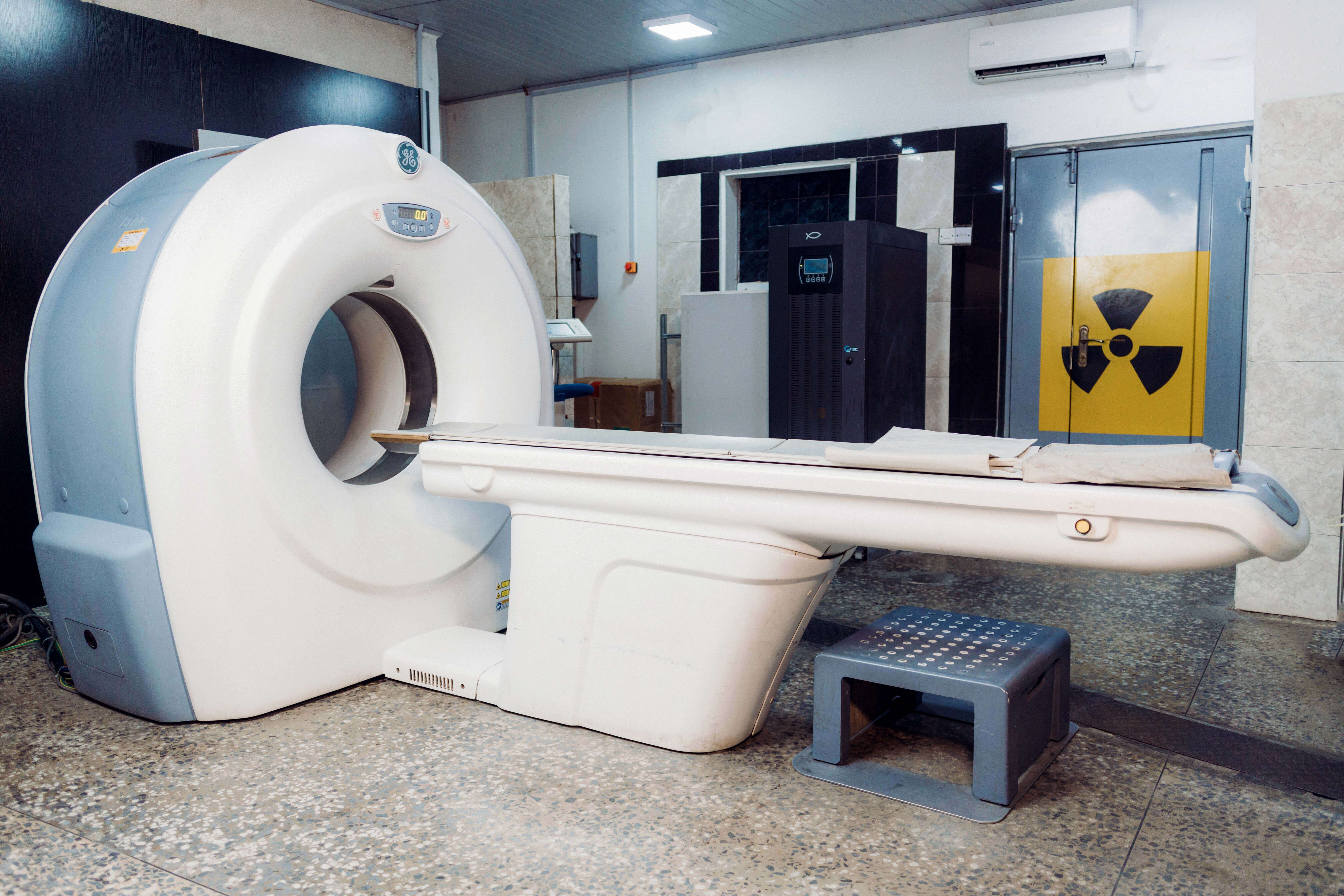Radiology (Imaging Services)
Computed Tomography (CT)
A type of x-ray examination known as computed tomography (CT) creates cross-sectional images of the body using specialist equipment. Every cross-section is a "slice" of the body portion being scanned. Three-dimensional images of the individual slices can be created using specialized software, offering more clarity and detail than traditional X-ray scans.

How do I prepare for the test?
For many CT scans, intravenous contrast, sometimes called dye, is given. If so, you must abstain from food and drink for four hours before your CT scan. You shouldn't consume any food or beverages during that time, and your doctor will give you advice on whether you should take any drugs during the fasting period.
You might need to sip on a flavored liquid to help visualize the digestive system if your abdomen or pelvis is being scanned. Before your test, you will be required to consume one or two bottles of this beverage at the office. The first bottle must be consumed an hour before the CT, followed by the second bottle 30 minutes prior. You can go back to your regular diet after your CT scan is over, but you'll need to drink more fluids for a few hours.
What will happen during the test?
Typically, a CT scan is rapid and painless. We will first administer an IV, typically into your arm, if your doctor has prescribed a CT scan with contrast. For a few minutes, you can experience a warm, flushed feeling and a mildly unpleasant taste in your mouth.
After that, we'll transport you to the CT examination room where we'll lay you down on the CT table, usually on your back. Your body may be illuminated in red as the table enters the scanner, which helps the scanner determine how you should be positioned. Modern CT scanners that we utilize emit just modest buzzing and clicking noises as they rotate around you. The radiographer will leave the room to conduct the scan, but he or she will always be able to see, hear, and communicate with you via the console room.
During the scan, the radiographer may instruct you to hold still and hold your breath. Any movement during a CT scan can cause the images to appear fuzzy and may necessitate repeating the scan.
It will take fifteen to thirty minutes to complete the scan.
Following the test
After the exam, you can carry on with your regular activities right away.
Your doctor who ordered the exam will be informed of the results of the radiologist's analysis of the CT pictures. The outcomes will then be discussed with you by your healthcare professional.
Related Links
Radiology Central Scheduling
- +234 (0) 807 420 2574
- radiology@thewestendhospital.com
